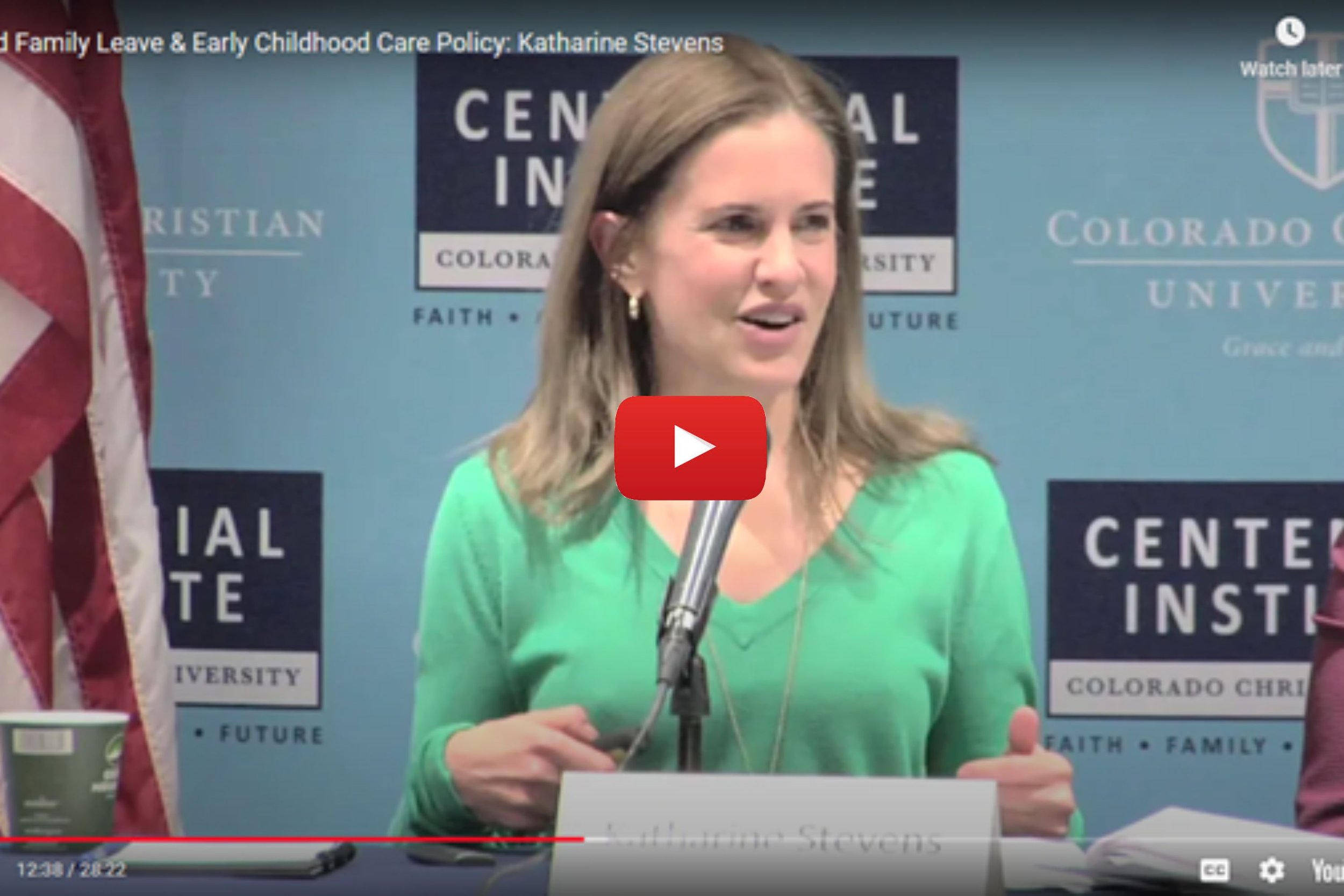PRE-K
An expert panel joins CCFP and the Niskanen Center to discuss Katharine Stevens’s new report on the strengths and weaknesses of Build Back Better’s early care and education legislation, and the best path forward for federal policy.
Katharine Stevens interviews economist Art Rolnick about his nationally recognized work with the Minnesota Early Learning Scholarships program, a parent-choice-driven model providing scholarships to parents with children from ages prenatal to five.
Is Build Back Better really dead? Katharine B. Stevens analyzes the childcare and universal preschool provisions of BBB, revealing a detailed legislative blueprint of an increasingly influential vision for America’s young children: federally-controlled preschool programs for all children from birth onwards.
This fall, New Mexico voters will vote on proposed use of New Mexico's Land Grant Permanent Fund to fund universal pre-K. Paul Gessing sits down with Katharine Stevens, CEO of the newly-launched Center on Child and Family Policy, to discuss New Mexico's growing pre-K push.
The recently stalled Build Back Better legislation contains $110 billion for universal pre-K for three and four-year-olds. But is a big investment in early childhood education necessary or beneficial for the academic and social development of American children?
Katharine Stevens joins Mike Petrilli and David Griffith to discuss President-elect Biden’s ambitious childcare and pre-K plans.
A state-funded New Mexico study reports “statistically significant” improvements in children’s outcomes, which in real life are essentially meaningless.
Research on the effects of preschool are actually showing the effects of parenting. Preschool doesn’t cause better long-term outcomes — it predicts them.
New Mexico’s Legislative Finance Committee (LFC) recently concluded that “prekindergarten remains a cost-effective way to improve student outcomes.” But the data they present cites does not support that conclusion.
Katharine Stevens joins Paul Gessing to discuss the New Mexico Legislative Finance Committee’s recently-released study of the state’s pre-K program, its implications for state pre-K policy, and better ways to improve outcomes for the state’s children.
What Detroit desperately lacks isn’t school for 4-year-olds. What it lacks is high-quality child care for the city’s youngest, most vulnerable children.
Katharine Stevens joins a panel of experts at the Centennial Institute for a discussion of market-based policies that strike a healthy balance between family wellbeing and a prosperous economy.
Tacking additional grades onto a poorly performing school system won’t help the children who need help the most. Improving the 13 grades they already attend could help them a lot.
When it comes to pre-K, we seem to have forgotten that kindergarten test scores aren’t the goal of early human development.
It’s hard to see how funneling a little more money into a badly underperforming, inefficient system will result in the “high quality” schools promised by Issue 44 promoters.
Despite the widely-repeated claims, pre-K doesn’t give disadvantaged children a strong start, and it doesn’t provide useful child care for large numbers of working parents.

















